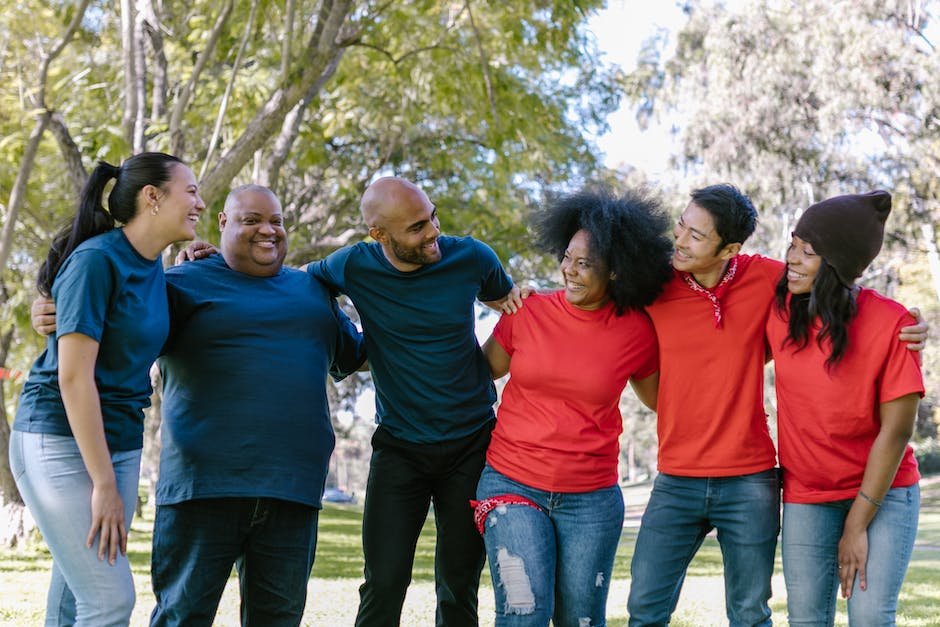Being a member of a locksport team offers a unique combination of technical expertise, camaraderie, and the thrill of solving intricate puzzles. Collaboration, innovation, and friendly competition drive these teams to push the boundaries of their lock picking skills. However, as with any group, conflicts can arise, and sometimes these conflicts stem from ethical dilemmas. How should we navigate the delicate balance between advancing our skills and maintaining ethical standards within locksport teams? Embarking on a journey into the world of ethical conflicts in locksport teams, this article explores strategies for handling these challenges while upholding the principles that make this hobby both fascinating and fulfilling.
Table of Contents
- Ethical Conflicts in Locksport Teams: Navigating a Moral Maze
- Understanding Ethical Dilemmas in Locksport Teams: Exploring the Gray Areas
- Building an Ethical Framework: Guidelines for Locksport Teams
- Fostering Open Communication: Resolving Ethical Conflicts in Locksport Teams
- Ensuring Accountability: Strategies for Ethical Decision-Making in Locksport Teams
- Q&A
- In Retrospect

Ethical Conflicts in Locksport Teams: Navigating a Moral Maze
Exploring Ethical Dilemmas in Locksport Teams
Embarking on a captivating journey into the world of locksport, enthusiasts often find themselves confronted with a moral quandary. As lockpicking teams grow in popularity, the ethical conflicts surrounding this challenging hobby become more apparent. Navigating a moral maze can be both perplexing and enlightening, forcing us to critically consider the implications of our actions.
One aspect of the ethical debates surrounding locksport teams centers around the question of consent. While locksport is an art form rooted in skill and knowledge, it is crucial that boundaries are respected. Ethical locksport teams prioritize obtaining permission and ensure that their activities are conducted within legal and ethical boundaries.
- Transparency: Ethical locksport teams are committed to transparency in their actions. They openly discuss and educate others about the underlying principles, techniques, and potential risks associated with their lockpicking endeavors.
- Ethical Hacking: Many locksport enthusiasts apply their skills to the field of ethical hacking. By identifying vulnerabilities and developing solutions, they contribute to improved security systems.
- Community Engagement: Ethical locksport teams actively engage with the lockpicking community and the general public. They organize educational workshops, seminars, and competitions to foster knowledge sharing while discouraging illegal practices.
While ethical conflicts may arise in locksport teams, it is important to remember that these challenges are not insurmountable. By adhering to principles of transparency, ethical hacking, and community engagement, we can navigate the moral maze that comes with this captivating hobby. Ultimately, fostering an environment of responsible locksport can contribute to the advancement of security and the development of a knowledgeable and morally conscious locksport community.

Understanding Ethical Dilemmas in Locksport Teams: Exploring the Gray Areas
In the intricate world of lockpicking, ethical dilemmas often arise, especially within locksport teams. As lock enthusiasts come together to share their passion and skill, they must navigate the gray areas that exist. These ethical dilemmas can revolve around various key aspects, each presenting its unique challenges to the team and its members.
- Locksmithing ethics: Locksport teams must weigh the ethical implications of their activities. While lockpicking is a legitimate and respected skill, it is essential to consider the boundaries. Engaging in malicious activities or providing assistance to those who might misuse these skills can compromise the ethical integrity of the team.
- Responsible disclosure: An ethical dilemma arises when lockpicking enthusiasts discover vulnerabilities in locks. While it may be tempting to showcase these flaws for recognition or bragging rights, ethical locksmiths adhere to a responsible disclosure policy. They communicate discovered vulnerabilities with lock manufacturers discreetly, allowing them to improve their designs and provide safer products for the public.
- Ethical competitions: Within locksport teams, competitions are often held to showcase their lockpicking abilities. However, dilemmas can arise when deciding on the rules and boundaries of these events. Balancing the competitive nature with ethical considerations, such as not promoting illegal activities or utilizing unfair advantages, is crucial in maintaining a positive and inclusive locksport community.
Understanding and discussing these ethical dilemmas openly can encourage locksport teams to establish guidelines and best practices that maintain the integrity of their craft. By exploring the gray areas together, teams can thrive, advancing their skills while upholding the values that make lockpicking a respected and appreciated art form.

Building an Ethical Framework: Guidelines for Locksport Teams
As lockpicking becomes increasingly popular as a sport and hobby, it is crucial for locksport teams to establish a strong ethical framework that promotes responsibility, respect, and integrity. These guidelines serve as a foundation for creating a positive and inclusive environment within the locksport community.
Guideline 1: Practice Responsible Locksport
a) Respect the Law:
- Always abide by local laws and regulations regarding lockpicking.
- Do not engage in any illegal activities or use lockpicking skills for malicious purposes.
b) Prioritize Safety:
- Wear appropriate safety gear and ensure a controlled environment during lockpicking activities.
- Consider the potential risks and take necessary precautions to prevent accidents or injuries.
Guideline 2: Foster Respect and Collaboration
a) Embrace Diversity:
- Celebrate and welcome individuals from all backgrounds and skill levels.
- Encourage inclusivity and provide support to foster a welcoming community.
b) Promote Knowledge Exchange:
- Encourage team members to freely share their skills, techniques, and knowledge.
- Create an environment where everyone feels comfortable asking questions and seeking guidance.
Guideline 3: Uphold Integrity
a) Gain Consent:
- Obtain proper authorization before attempting to pick a lock that doesn’t belong to you.
- Respect the privacy and property rights of others.
b) Be Ethical Competitors:
- Compete fairly, without resorting to cheating, sabotage, or unethical behavior.
- Respect the rules of locksport competitions and acknowledge the achievements of fellow participants.
By adhering to these ethical guidelines, locksport teams can ensure that their activities enhance skill-building and camaraderie while promoting positive values within the community. Let’s build a locksport culture that thrives on respect, collaboration, and integrity.

Fostering Open Communication: Resolving Ethical Conflicts in Locksport Teams
In order to foster open communication within locksport teams, it is crucial to develop effective strategies for resolving ethical conflicts that may arise. With the diverse range of personalities, experience levels, and perspectives within these teams, conflicts can be inevitable. However, by creating a culture of transparency and understanding, these conflicts can be addressed and resolved in a fair and respectful manner.
One key approach to resolving ethical conflicts is through active listening and open dialogue. Encourage team members to actively listen to each other’s viewpoints, ensuring that everyone feels heard and understood. This can be achieved by providing a safe space for open discussions and promoting a non-judgmental atmosphere. Additionally, implementing regular team meetings and check-ins can help identify and address any ongoing conflicts before they escalate.
Furthermore, establishing a clear code of ethics or set of guiding principles can be instrumental in guiding the behavior and decision-making of locksport team members. These guidelines should encourage honesty, integrity, and respect for one another. By setting these expectations from the beginning, it becomes easier to navigate ethical conflicts as they arise. Regularly revisiting and reinforcing these principles will help maintain a strong ethical foundation for the team.
Ensuring Accountability: Strategies for Ethical Decision-Making in Locksport Teams
When it comes to lockpicking, ethical decision-making is crucial in maintaining the integrity of locksport teams. To ensure accountability within these teams, there are several strategies that can be implemented:
- Establish Clear Guidelines: Creating a set of ethical guidelines that all members must adhere to is key. These guidelines should outline the principles and values that the team upholds, such as respecting the law, obtaining proper permissions, promoting education, and avoiding any harmful or malicious practices.
- Encourage Open Communication: Fostering a culture of open communication within the team allows for discussions and debates about ethical dilemmas. Team members should feel comfortable sharing their thoughts and concerns, engaging in healthy debates, and collectively arriving at well-informed decisions.
- Regular Ethical Training: Conducting regular trainings on ethical decision-making can help team members understand the potential consequences of their actions. These sessions can cover topics such as legal implications, privacy concerns, and the importance of obtaining proper consent.
By implementing these strategies, locksport teams can ensure that ethical standards and accountability remain at the forefront of their practices. Upholding integrity within the community is not only essential for maintaining trust among team members, but it also helps to portray locksport as a responsible and legitimate discipline.
Q&A
Q: Why is handling ethical conflicts important in locksport teams?
A: Ethical conflicts can arise when determining the boundaries of locksport. Resolving these conflicts is crucial to maintain a positive and ethical environment within locksport teams.
Q: What is locksport?
A: Locksport involves the recreational pursuit of picking locks, which often attracts a community of lock enthusiasts who share knowledge about locks and lock-picking techniques.
Q: How do ethical conflicts commonly arise in locksport teams?
A: Ethical conflicts may arise when determining if certain locks or locations are off-limits or if the sharing of certain knowledge infringes on ethical boundaries in the locksport community.
Q: What are the potential consequences of unresolved ethical conflicts?
A: Unresolved ethical conflicts can lead to divisions within locksport teams, erosion of trust among members, damage to the reputation of the locksport community, and even legal implications in extreme cases.
Q: How can ethical conflicts in locksport teams be resolved?
A: Resolving ethical conflicts in locksport teams requires open and respectful communication, active listening, considering different perspectives, and establishing clear guidelines and boundaries within the team.
Q: Should locksport teams establish a code of ethics?
A: Yes, establishing a code of ethics can help preemptively address potential conflicts and provide a framework for resolving them, promoting ethical standards and fostering a healthier locksport community.
Q: What are some key ethical principles to consider in locksport teams?
A: Ethical principles to consider may include respect for others’ property, obtaining appropriate permissions for locksport activities, responsible knowledge sharing, and avoiding malicious or illegal activities.
Q: How can locksport teams promote a positive ethical culture?
A: Promoting a positive ethical culture involves fostering an environment of honesty, integrity, respect, and transparency within locksport teams, while encouraging ongoing discussions about ethics and ethical decision-making.
Q: Are there any resources available to help locksport teams navigate ethical conflicts?
A: Yes, there are online forums, communities, and organizations dedicated to locksport ethics that can provide guidance and support for locksport teams facing ethical conflicts or dilemmas.
In Retrospect
As we delve into the intricate world of locksport teams, one cannot overlook the critical issue of ethical conflicts that may arise within these tightly-knit communities. Navigating the delicate balance between personal gain and moral responsibility can be a daunting task, but fear not – armed with knowledge and empathy, we can transform these ethical conflicts into opportunities for growth and unity.
Remember, as locksport enthusiasts, our passion lies in unlocking the secrets of security systems, challenging ourselves to surpass the limits, and fostering a sense of camaraderie with our teammates. But it is crucial to recognize that our actions have consequences, both on an individual level and for the entire community. Ethical conflicts may arise when we come face-to-face with situations that challenge our values, test our integrity, or call into question our commitment to fair play.
To navigate these treacherous waters, it is imperative that we uphold a set of guiding principles that will not only preserve the integrity of our locksport teams but will also foster an environment of respect and trust. Here, we provide you with a roadmap to effectively handle ethical conflicts:
1. Communication is Key: Foster open and honest dialogue amongst team members, encouraging an atmosphere of trust and understanding. By discussing conflicting values or concerns, we pave the way for resolution and growth.
2. Establish Ethical Guidelines: Create a code of conduct that reflects the values and principles you hold dear as a team. These guidelines serve as a compass, pointing towards ethical decisions and behavior, and acting as a reminder when challenges arise.
3. Seek Different Perspectives: Embrace the diversity within your team and actively seek out different viewpoints on ethical matters. By considering alternative opinions, we can broaden our understanding and uncover innovative solutions.
4. Education and Awareness: Constantly educate yourself and your team on the ethical dilemmas present in locksport. Understand the potential consequences of unethical actions and strive to acquire the knowledge necessary for making informed decisions.
5. Mediation and Conflict Resolution: Inevitably, conflicts may arise within the team. Utilize mediation techniques, such as active listening and compromise, to find common ground and achieve resolutions that respect the values and goals of all parties involved.
By following these guidelines, you can confidently navigate the ethical minefield that locksport teams occasionally find themselves in. Remember, ethical conflicts should not be seen as detrimental but rather as opportunities for growth and improvement. Through open communication, shared values, and respect for others, we can strengthen the bonds of our locksport community and pave the way for a brighter, more responsible future.
As an affiliate, my content may feature links to products I personally use and recommend. By taking action, like subscribing or making a purchase, you’ll be supporting my work and fueling my taco cravings at the same time. Win-win, right?
Want to read more? Check out our Affiliate Disclosure page.